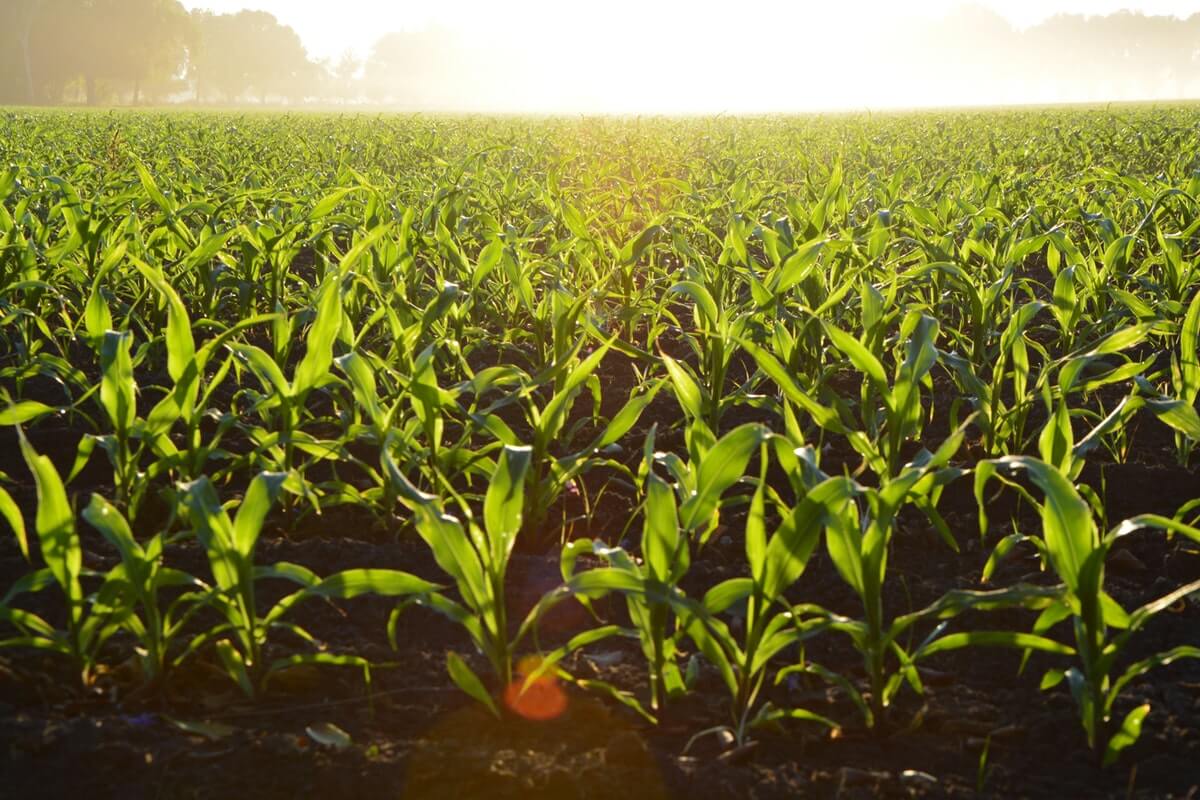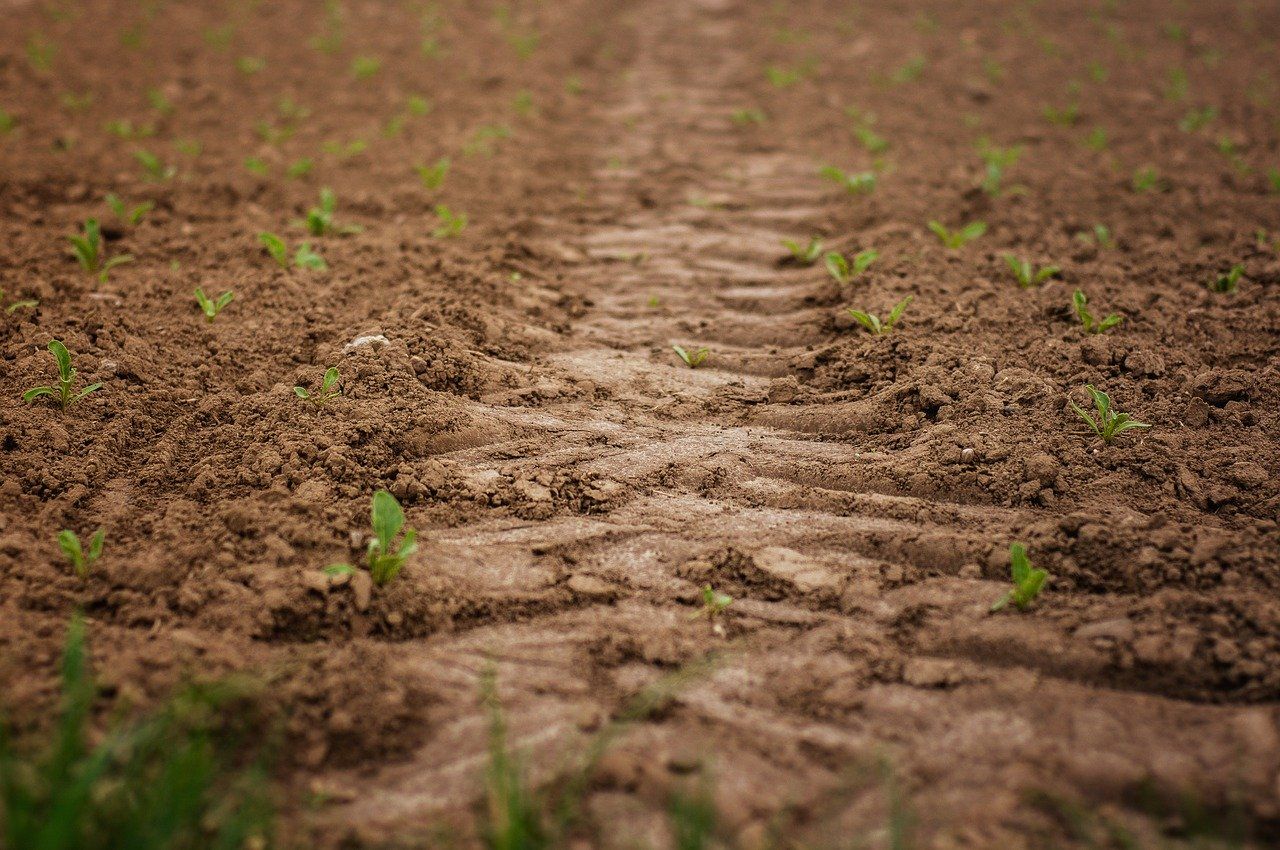If you are new to gardening, you may be wondering how long it will take you to get results. Like any natural process, success in gardening is greatly dependent on a wide variety of variables. The temperature, the quality of your soil, the location of your garden, your timing and factors beyond your control all work together to determine just how long it will take you to get started and see success. In this article, we discuss some of these factors and explain how they affect the corn germination process. Read on to learn more on how long does it take corn to germinate.
What You'll Learn Today
Under Ideal Conditions, You’ll See Sprouts In A Couple Of Weeks!

When sowing corn outdoors, directly into the ground (here is our piece on corn planting with a tractor), it’s usual to wait until two or three weeks after the last frost in the springtime.
By doing this, you can be sure that the soil has warmed up sufficiently to trigger germination.
Soil should be at a reliable 60 degrees Fahrenheit for corn to sprout. Once sprouting has started, you should see your young corn plants emerging from the soil within ten days-to-two weeks.
6 Factors That Affect The Speed Of Corn Germination

There are a number of reasons why germination may be delayed. Here are six of the most common causes of delayed corn germination.
1. The soil temperature may be too low
Typically, the temperature of the soil is five or ten degrees lower than the temperature of the air. If you plant your corn on the first 70 degree day, the soil will not be warm enough to trigger germination.
It takes two or three days of 70-90 degree weather to warm the soil up to 60 degrees or higher. If you have planted your corn in soil that is 55 degrees Fahrenheit or cooler, it could take a little over three weeks for the corn to germinate.
2. Your soil may not be wet enough, or it may be too wet
Your soil must have just the right amount of moisture in order for corn to sprout. Excessively dry or excessively wet soil will prevent germination.
3. You may have poor soil
Corn, like most plants, likes light, airy, well-draining soil. If your soil is too packed, too sandy or too full of clay, it will not perform well enough to germinate and grow corn.
Till the soil thoroughly and work in some organic compost, aged manure, loam and other amendments as needed to get the right consistency.
4. Your planting bed may be poorly situated
Corn needs direct sunlight all day long in order to germinate and grow. Additionally, your corn field should not be situated in a low-lying area where water will pool.
If your only sunny spot is on low land, you’ll need to plant your corn in raised beds or on mounds of soil so that it won’t end up standing in water.
5. Your soil may have become crusted
Even with good planning, good positioning and good soil preparation, a crust can develop on the surface of the soil if you have unexpected, heavy rains.
Your corn seeds may germinate fine but be unable to break through this crust. You can solve this problem by using a rake or similar implement to keep the surface of the soil light and arable.
6. You may have been robbed
Lots of different types of underground pests enjoy eating seed corn. Among them are:
- Seed Corn Maggots chew holes in seed corn and potatoes. You can lure them away from your seed corn by cutting potatoes in half and impaling them on a metal or wooden rod. Bury the potatoes underground (with the skewer poking out) throughout your corn plot. Check your traps every couple of days. Drop the used potato chunks into a bucket of soapy water and replace them with fresh potato chunks.
- Corn Wireworms are Click Bug larvae. They bear a striking resemblance to millipedes, and they survive by eating plant seeds and roots. They can be controlled by the addition of beneficial nematodes to your soil, but this may take a while. For faster results try an application of tobacco tea.
Above ground critters, such as mice, rats, chipmunks, squirrels, raccoons, skunks and birds may dig your seed corn up and eat it.
To prevent this, cover your planting rows with poultry netting, hardware cloth or even old window screens until your corn has sprouted and made an above-ground appearance.
You can also prevent predation of your seed corn by following the instructions for pre-germination in this video.
Germinating Corn
Frequently Asked Questions
After you plant corn, how long until it germinates? With soil temperatures in the low to mid 50s, Fahrenheit, you can expect your corn to emerge about three weeks after planting. With soil temperatures about 60 degrees Fahrenheit, you can expect your corn to emerge in under two weeks. Of course, germination is also dependent on the amount of sun and rain available, along with other environmental factors.
Soaking softens the outer surface of the seed and can help seed corn get a good, quick start (as long as the soil is warm enough.) Soak sweet corn seed all night in lukewarm water before planting day.
If you want to speed up germination, soak corn seed in water at 50-60 degrees Fahrenheit for one or two days before planting. This will rehydrate the seed and give it a good head start for sprouting in warm soil.
Poor germination can be caused by cold temperatures and/or lack of moisture or uneven moisture. Be sure to wait until your soil is reliably warm before planting. Be sure that the soil stays consistently moist at the seed zone until the seeds have sprouted and plants have become well established.
Keep a close eye on the soil after planting corn seed. Use drip irrigation or a soaker hose to keep the top three or four inches of soil moist (not soggy) until seeds have germinated. Once plants are established, you can reduce watering to about one inch of water a week, unless you are experiencing extreme heat and/or drought. In this case, you may need to water more often. Always choose watering deeply occasionally over water a little bit frequently. Occasional deep watering encourages healthy root growth.
I live in Northern Monana with a short growing season. I’d like to plant corn with the shortest germination ,and growth period that also has the largest ears. What seed do I use please?
NW Yonko, I think there’s a corn called painted mountain – it is a cold tolerant short-to-harvest corn. I had success with it through our warm late winter/spring where we are in Australia. I don’t know where you’d source it over there, but from memory it hails from your neck of the woods; I could be wrong on the geography though. I do know that it exists!
Good luck!
Here’s a handy list that presents lots of options for gardeners in your situation! https://rennieorchards.com/early-corn-varieties/
I live in Alexandria va. Our 5th graders just planted the Three sisters. Corn, bean and squash. I will keep you updated with the growth.